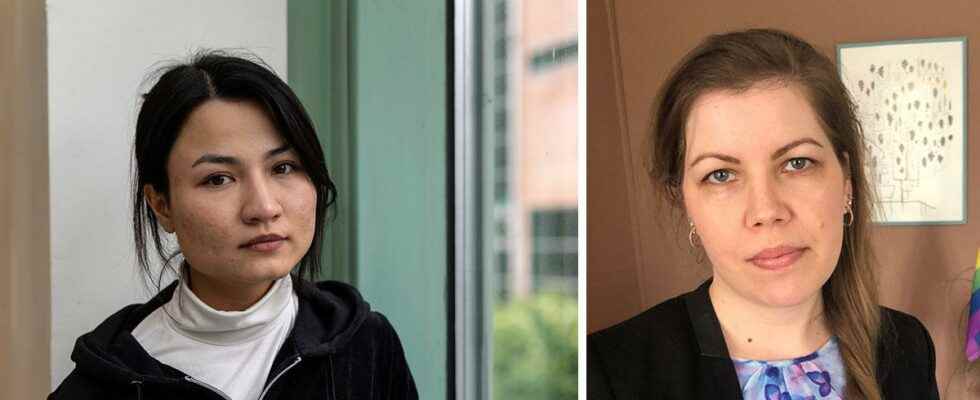The Swedish Migration Agency thinks that Sahar Soltani should adapt to the Taliban’s customs and practices in the event of deportation.
Her legal representative believes that the 22-year-old’s reasons for protection are clear.
– It should be enough to be a woman from Afghanistan, says Malin Dahl, lawyer at Fridh law firm.
Sahar Soltani and her family have had their application for asylum rejected by the Swedish Migration Board.
The decision states: “It is up to the family to adapt to the cultural customs and usages of their home country upon return”.
In practice, this means, among other things, that an adult woman, such as a 22-year-old Sahar, needs a male companion when she moves around in society.
The case has been appealed and is awaiting processing by the next instance, the Migration Court.
Should be practice
Malin Dahl, a lawyer at Fridh law firm and the family’s legal representative, believes that the demands made on women by the Taliban regime should lead to the Swedish Migration Board granting Afghan women asylum.
– I think that this with a male network and a male in general should be put into practice. It is not reasonable to refer a woman to a male head, whether it is your father when you are a child, but even less so when you are an adult so that you have to get married. There is a practice issue to address.
For Sahar Soltani, an “adaptation to customs and usage” would mean that she would have to find a man to marry in the event of deportation to Afghanistan, according to Malin Dahl. But even if she does, she may not always leave home, for example.
“Can not see a worse risk profile”
Sahar Soltani also belongs to the often persecuted minority group Hazara in Afghanistan. She has turned her back on Islam, has a boyfriend in Sweden and is studying. The family believes that they have become “Westernized” after a long time in a European country.
All those factors should be assessed together, but also individually, Malin Dahl believes.
– The Swedish Migration Agency lacks a cumulative assessment. They judge by each factor but fail to combine them. If you are a Hazara, a Shia Muslim, a refugee from Europe, grew up here, went to school here, what will be the risk profile?
– And to also be a woman, as in this case. I can not see a worse risk profile than for Sahar.
The last instance for the appeal, the Migration Court of Appeal, is the one that makes guiding decisions, ie the practice that Malin Dahl talks about.
“May there be reason to look”
Anita Linder, judge in the Migration Court of Appeal, says that there may be reason to investigate whether the situation that prevails for women in Afghanistan may mean that they thus have a reason for protection.
– If we think we have a situation where legislation or practice is not already clear whether it is a reason for protection or not, we will address it. There may be reason to look at protection reasons if the women have a special situation, such as the need for a male companion.
The crucial thing, she explains, is whether the situation – that as a woman living with such restrictions – constitutes a reason for needing protection in another country. The Migration Court of Appeal can then choose to try the case when it has been appealed to that instance.
– It can be an interesting question to comment on, absolutely, says Anita Linder.
